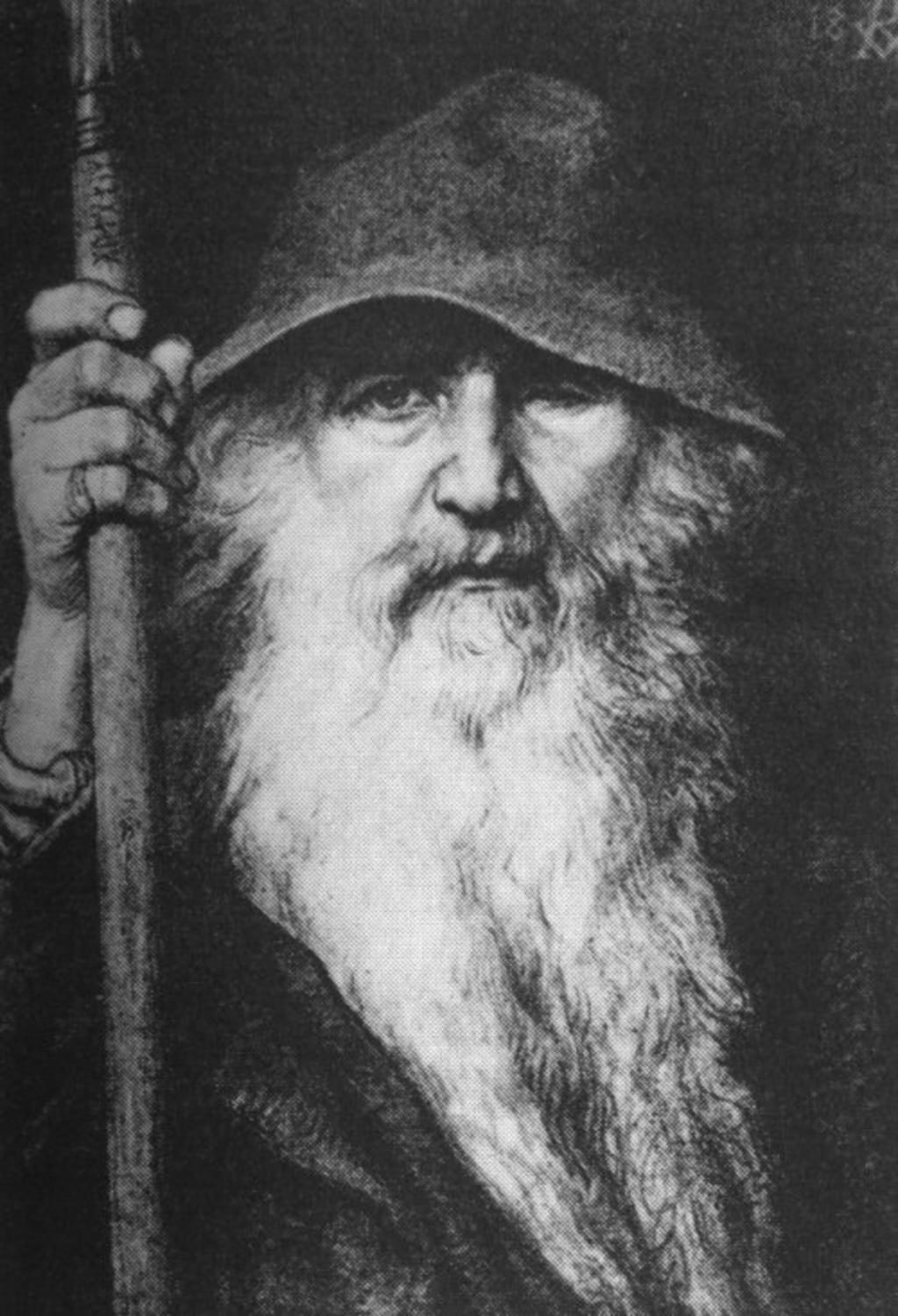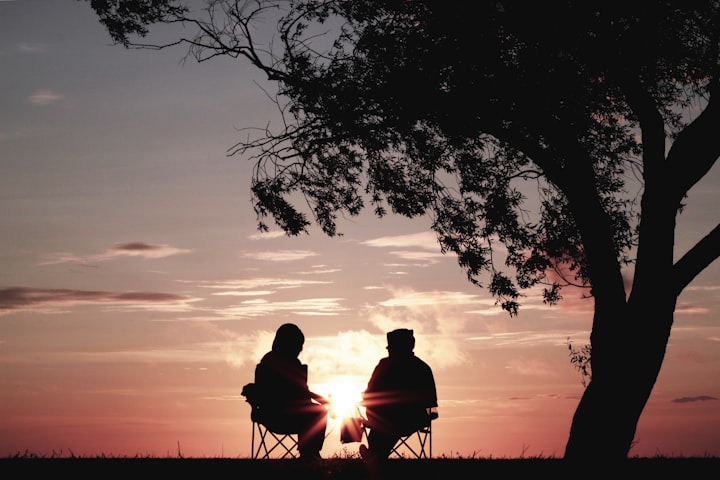What Would Dr. B. Do?
Remembering My Academic Father Figure

What Would Dr. B Do?
Remembering My Academic Father Figure
Today is Father’s Day. I don’t know why, but I feel like it’s time to finally write about Dr. B. To say that Dr. B. was a genius would not be enough of a compliment. To say that he was a mentor to me would be a criminal understatement. He was a second father. And I still have a hard time dealing with the thought that I should have spent more time with him. Dr. B. looked like Odin, the wise father of the Norse gods. He was big, with a thick, white beard. He was also as wise as Odin… and as jolly as Santa Claus. A lot of people made those comparisons. He knew everything. He knew when you were sleeping; he knew when you were awake (at least, when you were in his class). He knew who had been good or bad (in terms of documenting sources). One time he asked me to grab something from his office and I found a Santa suit hanging on the inside of the door. He said that he played Santa for a local charity, but I had a suspicion that he was the real deal. Professors get a few weeks off during the holiday season, so he would have had time to wrangle elves and finish his gift deliveries with a couple of weeks left to prepare for Spring Semester courses.
He was the only professor of mine who I knew well enough to call by his first name without feeling strange. But for most of the time I knew him I called him Dr. B. (B for Bernie). The formal title plus first name seemed like a good compromise of respect and friendship. I called him Dr. B for years while working on my Ph.D. Then, the first time I saw him after I finally finished my doctorate, I greeted him with my usual, “Dr. B!” and he replied, without hesitation, “Dr. S!” That was the moment that it became real to me that I had completed the biggest goal of my life. Not when I told my family, not when my dissertation panel announced that I had passed my defense, or when it was posted in our department’s newsletter. It was when my second father passed me in the hallway and casually addressed me as “Doctor S.” That’s when I felt like it was official.
Every time Dr. B. entered the classroom, he greeted the graduate students the same way. He nodded with sincere respect and said, “Scholars!” That was the first time I ever really felt like a professor respected the students. I have had plenty of professors who liked us, valued us, and believed in us… and a few who didn’t convey any of those things. But Dr. B. communicated a deep, almost reverent respect for his students. We were his kids. We were his future. We were the ones who had dedicated our lives to knowledge, wisdom, and truth in an age when those things seemed to be valued less each year. He didn’t believe in the “ivory tower” approach to scholarship. It was about making society better, making people wiser and more ethical through inclusion, acceptance, critical thinking, and open discussion.
His greatest achievement seemed to be a case that he found out about years after a student had graduated. A former student sought him out to tell him a brief but life-changing story. She had had an undergraduate literature course with Dr. B., just one. They talked about many things, including Henry David Thoreau’s essay on Civil Disobedience, Dante, and a number of other influential authors and works. Years later, she worked at a hospital where she admitted patients for treatment. One night, someone was brought in with a deep wound in his abdomen. He was bleeding out. It was a children’s hospital, and they were not supposed to admit adults. According to protocol, she should have called an ambulance to take him to another hospital. She thought that she might lose her job if she brought him in for treatment, but she didn’t think he could wait another minute. Her next thought was about one of Dr. B.’s discussions about morality, ethics, and the responsibility that every person has to do what’s right according to their own conscience. Could she find another job? Yes. Could she bring this man back to life? No. She brought him in, got him treatment, and he lived. Even better, the administrators agreed that she violated the rules in a way that was acceptable under the circumstances. Out of all of Dr. B.’s stories, I think that was his favorite. It was not the one he told the most often, but it was the one that made his eyes glow. I could tell from his tone and his energy that his whole career was worth it for that moment when he learned that something that he had talked about in class had saved a life. More importantly, it may have even saved a soul.
Dr. B. seemed like he would rather talk with students than do just about anything. Most of the other professors enjoyed and appreciated their jobs and their students. Dr. K said one time, “I’ve got the greatest job in the world! I get to read for a living!” She was one of my favorites. However, there are times when anyone can feel overworked, tired, or just not in the mood to talk. Other faculty members were polite, but you could tell when they were drained. When you tapped on Dr. B.’s door, it was as though he had been waiting for you all day. It wasn’t desperation. He wasn’t lonely. He had a fantastic wife who was just as smart as he was, and two brilliant daughters who were accomplished scholars in their own fields. No, Dr. B. just loved to talk with the next generation of academics. And he listened with absolute focus. I always try to do that, but I don’t feel like I will ever have his level of patience and kindness.
When we were co-teaching a class, I think the Freshmen were just overwhelmed by him. They weren’t intimidated per se. That would indicate a kind of fear. They were awestruck with his vast knowledge and otherworldly, larger-than life presence. They rarely said a word when he asked questions or requested opinions. On the days when he didn’t attend class, I took the lead and got the students talking and sharing their thoughts about the readings. I found out later that he would show up late on purpose and listen from the hallway to hear what the students were thinking. He liked that I could get them to open up and talk. I hope he never thought of it as a result of any kind of shortcoming on his part. They were just paralyzed with respect when he was in the room. I was merely young and buffoonish enough to relate to them and make them loosen up. Respect was no barrier to conversation when I was the only instructor in the room.
After I graduated, I kept in touch with Dr. B. I went to his house many times to visit or help him with projects. I was recently graduated and working as a part-time instructor at three different colleges, plus whatever side work I could find. Times were tough. Going to work at his place was the highlight of the week. I got a hundred bucks, a gourmet breakfast and lunch (he and his wife were both fantastic cooks), and the best conversation I could have ever asked for. I needed the money, but that was a secondary benefit. The conversations were priceless. We built a retaining wall in the back yard and talked about everything interesting to us. The stories from his days as a naval officer in Vietnam were especially entertaining. I don’t know how he managed to get through that time with his sanity intact. I never thought to ask if he knew Anne, his wife, at that time. If so, I imagine that she helped him to stay grounded.
When I found out that Dr. B. had died, I held up OK at first. They had a special service for him at the chapel at the university. I was there, along with a few other students who had been transformed by knowing him. I walked out of the chapel at the end of the service, and something came over me. The cliché “hit me like a ton of bricks” comes to mind – it’s terribly trite, but that was the closest thing I have ever felt to an emotional avalanche. Suddenly, everything was strange and heavy and wrong. I realized that I had lost a parent. I saw Anne and ran to her like a child who has been lost and finally sees its mother. It’s embarrassing even now to remember how I sobbed. I sobbed so hard that I couldn't catch my breath. I hadn’t done that since I was three years old, I think. There was no over-thinking, no analysis, no reason at all. I couldn’t logic my way through it. It was just pain, as raw and real as I have ever felt.
Sometimes I still feel a little bit of that pain come back, a ghostly visitor whispering "Don't forget." Those of us from his classes who stay in touch often joke that we should wear bracelets that say WWDBD? What would Dr. B. do? It’s a good question and I find myself asking it more and more all the time.





Comments
There are no comments for this story
Be the first to respond and start the conversation.